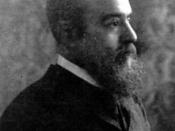Abstract
With regard to the study of politics, this essay will attempt to define elitism, citing the major founders of the discipline. Pluralism and rational choice theory will also be discussed in turn, with particular attention to the main assumptions involved in the application of the theories. All three disciplines will be criticised and compared on any assumptions that seem to differ or oppose each other. A conclusion will be made, summing up the merits of the disciplines, but acknowledging that politics is best viewed from an open perspective.
*****************************************************
It could be argued that politics is everywhere, from the debates and decisions of a powerful government, to an argument between family members. There are many different ways of studying politics, each with different emphases, theories and assumptions. Three of these are elitism, pluralism and rational choice theory, or the 'economic' approach to politics. Though they analyse the same systems and institutions, the assumptions that the approaches use mean they see politics in diverse ways.
Elitism claims to be a realist approach to politics. It argues a 'reality' of elite rule, where minorities with expertise in their field form an elite, and have considerable power over the majority. Sceptical about democracy, elitists see elites everywhere, in all institutions, and are critical of other approaches to the study of politics, as they do not acknowledge the power, or even existence of elites. It is possible to bring a normative approach to elitism, as well as the empirical aspect or 'realist' view. The normative approach would argue that elites should rule, as they are: "people of superior character, and energy" (Mills, 1956:13).
Classical elitism and the assumptions associated with it are generally attributed to three main theorists. Vilfredo Pareto wrote that within the general elite of society, there is a 'governing elite',


